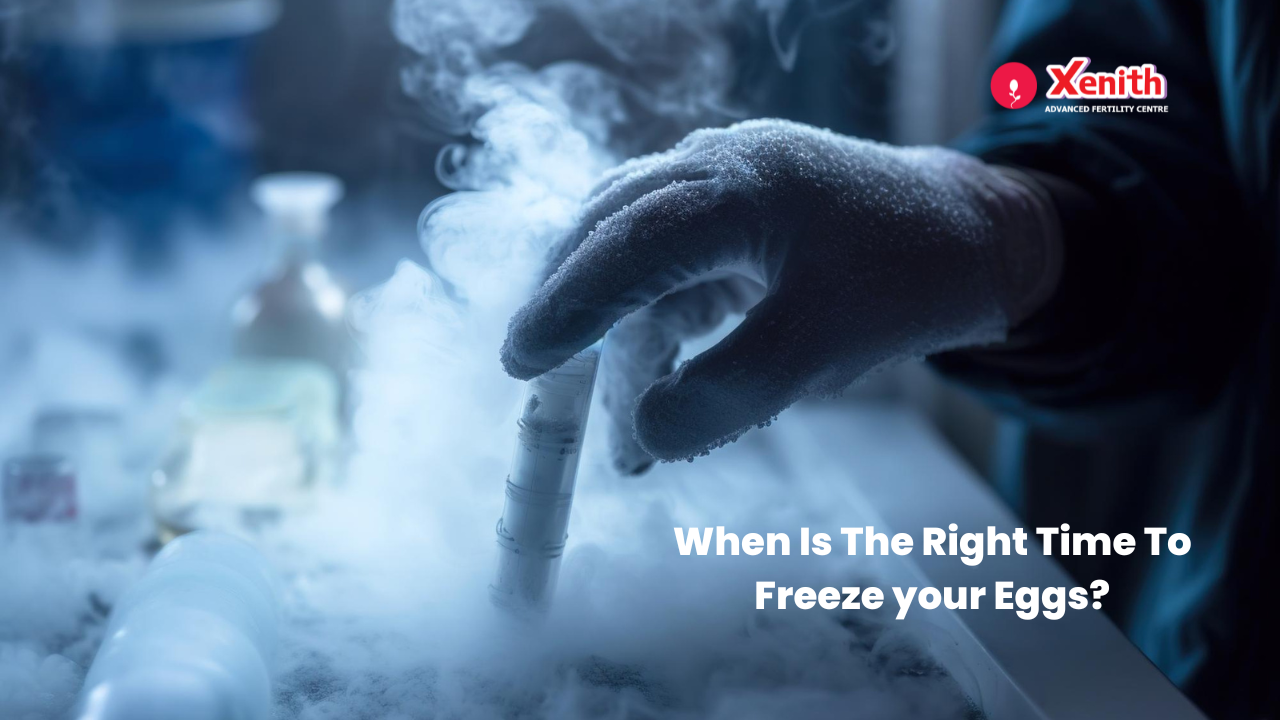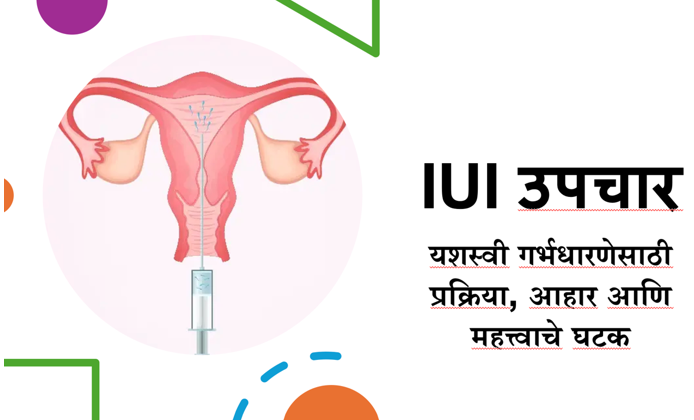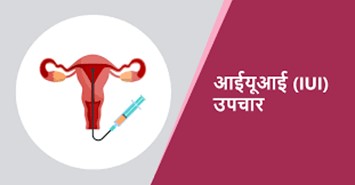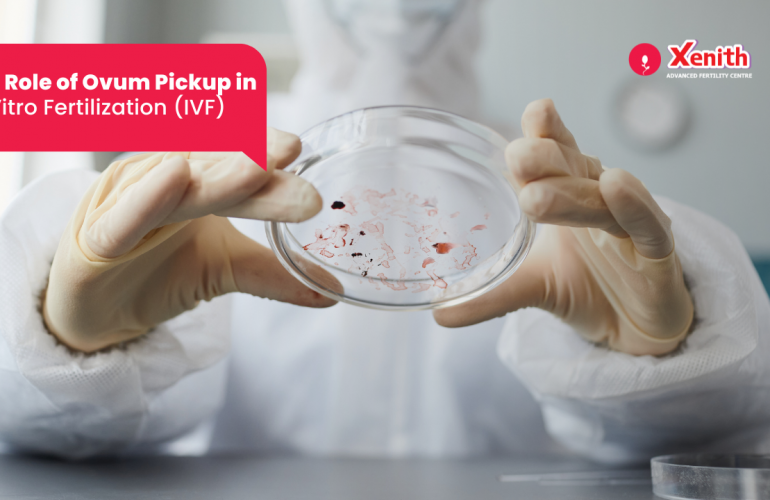Since women are born with all the eggs they will ever have and their fertility declines with age, some women, who want to have children later in life, are choosing to freeze their eggs. It’s better to preserve the good quality eggs when one is younger to use at a later date, in order to have a better chance of getting pregnant with children who are genetically linked to them. Also, there is not much difference in pregnancy success rate between using fresh eggs vs frozen eggs.
What is egg freezing and how is this procedure done in Xenith Advanced Fertility Centre?
The process of egg freezing begins with a doctor’s consultation and various tests like blood and urine tests as well as a pelvic ultrasound are done to check your hormonal levels, egg quality, egg count, uterus condition and various other parameters. With this information, hormonal injections will be given to stimulate your ovaries so that multiple eggs will mature at one time in your ovaries. Usually, under normal circumstances with no treatment, only one egg matures at a time every month. You might need to go to the centre several times for ultrasound and other tests so that they can monitor the growth of the eggs and determine when to retrieve the matured eggs. Once the eggs have matured, they are then retrieved from your ovaries under the guidance of an ultrasound and the eggs are “vitrified”. Vitrification is a process where the eggs are stored in a special solution to prevent damage by ice crystal formation and flash frozen in milliseconds in liquid nitrogen at -196oC and stored in special cryogenic freezers. At this low temperature, the biological process in the egg is abruptly halted so that it can be stored safely for use at a later time. At a later time, when the patient is ready to try to become pregnant, the eggs are thawed carefully, removed from the preserving solution, washed in a culture medium and fertilized with a single sperm in order to form an embryo. This is then transferred to the uterus for implantation. Just before this, the woman’s uterus is readied for implantation so that the embryo will be able to implant for successful pregnancy to occur.
The number of eggs you want to freeze could depend on your age, your overall health, your genetics and various other factors as the egg quality declines over time. So, an older woman might want to freeze more eggs than a younger woman in order to have better chances of getting pregnant. It would also depend on how many kids you might plan on having in the future. So, it’s good to discuss these things with your doctor and about your chances of getting pregnant. Here, at Xenith, we have advanced lab equipment needed to properly and delicately handle sperm, egg, embryos and other lab samples so that the chances of success are much improved. Even small things like air quality in the lab is vigorously monitored to improve the chances. We have highly experienced embryologists and IVF technicians who have a lot of experience in dealing with your unique circumstances and provide a stress-free environment for your discussions and interactions with the doctors and other staff. We also provide counseling if you feel it’s needed.
Possible reasons for freezing the eggs
Women might choose to freeze their eggs for various reasons. If you have been diagnosed with cancer and have to undergo treatment for it, there is a possibility that your eggs could get damaged in the process. So, you might want to extract the eggs before undergoing treatment so that it could be used at a later date when you are cancer free and ready to have children. You might have other health issues too like endometriosis or other health problems where you might want to have good health before attempting to get pregnant and have children. Others might be career oriented wishing to climb the career ladder and achieve their career goals before going in for a family or they might want to further their education before settling down to have a family. Also, some workplaces might not be so tolerant to pregnant women working in their company and they might lose their job in the process. Still others might not have met the right partner to settle down with. Some might feel that they aren’t mature enough emotionally to have a child. Yet others might be afraid of encountering early menopause because it runs in their family and wish to preserve their fertility. Sometimes couples undergo in vitro fertilization (IVF) procedure and might have some eggs leftover. They might then choose to freeze those eggs so that in the future, when they want to attempt having a child, they will not need to go through the whole IVF procedure from the beginning. Whatever the reason might be, freezing your eggs might give you the opportunity to delay having children at your convenience. In India, frozen eggs and their records can be kept for 10 years without losing quality. But is there a time limit for your age?
Age considerations
Women need to understand that their fertility depends on many factors of which the main one is age. Even though fertility declines over time in men, the window of fertility is narrower and declines more sharply in women after a certain age. The total number of eggs as well as egg quality decreases with age until menopause when there are no more eggs remaining. This decrease is also associated with lower chances of conception, and higher risk of genetically abnormal embryo formation, increased risk to mother and baby’s health and miscarriage. A woman is usually most fertile in her late teens to late 20s and then fertility gradually begins declining by age 30. After this, there is a sharper decline seen by mid 30s. (1) Other factors that might affect fertility include lifestyle, overall health, environment and genetics, amongst other things. Because each woman is unique depending on various circumstances in her life, her egg health and fertility will reflect that. One study found that egg freezing has the largest benefit and is most cost effective at age 37. However, the highest probability of live birth was when egg freezing was done at ages of less than 34 years and there was little benefit if it was done between ages 25 to 30 years. (2) So, in general, it’s better to preserve your eggs before the age of 35. Freezing your eggs could buy you some time and help you to secure your parenthood dreams for the future. Come have a frank and open discussion with us at Xenith Advanced Fertility Centre and find out your chances of having a baby.




